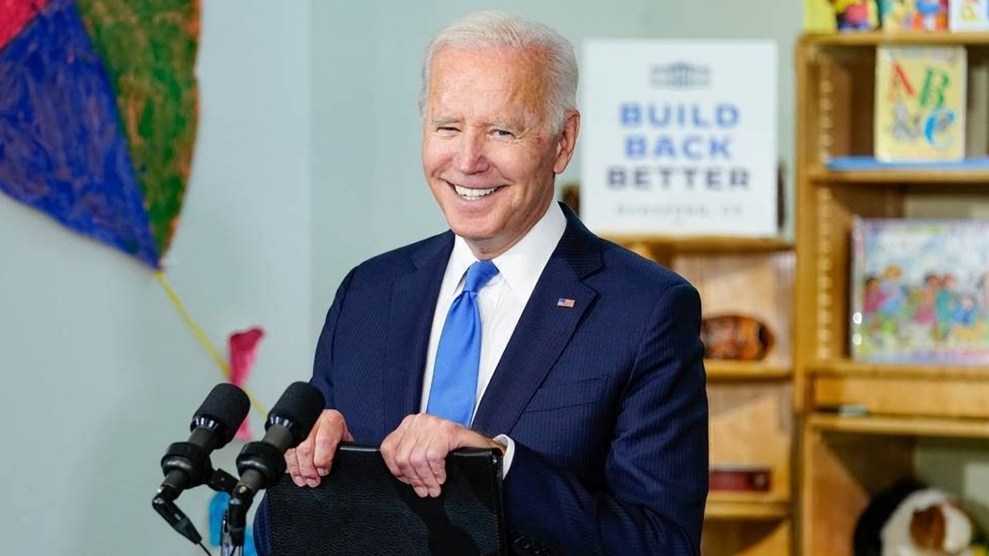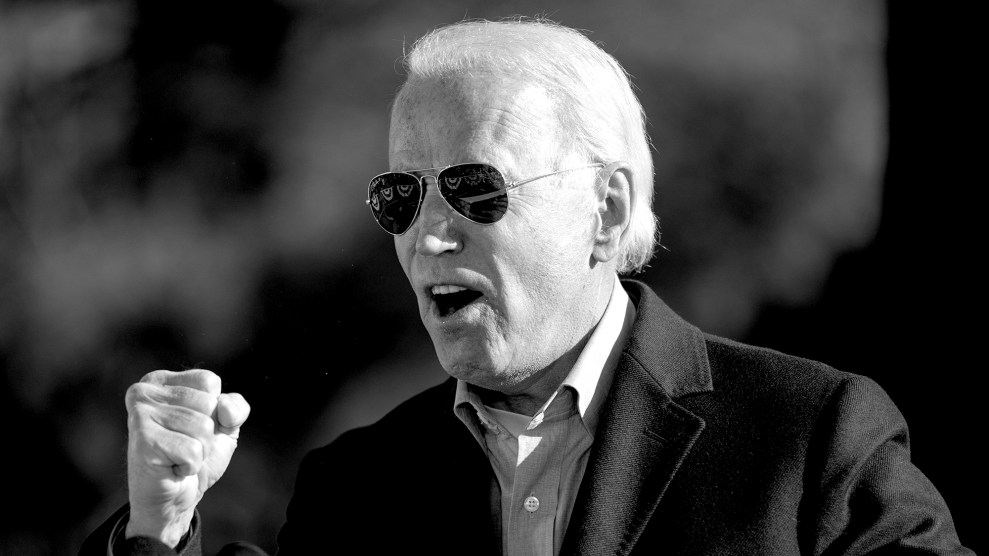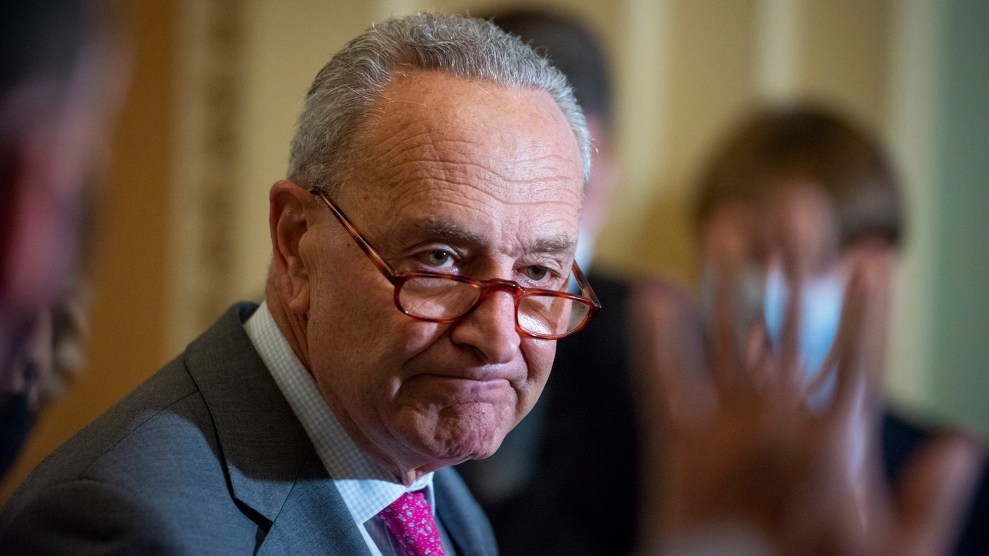
Adam Schultz/Zuma
President Joe Biden secured his first major legislative achievement when he signed a $1 trillion bipartisan infrastructure bill into law on Monday. The package, resulting from months of congressional debate, includes billions of dollars of investments in the nation’s bridges, roads, airports, transit systems, and power grid.
After the Senate passed the bill with bipartisan support in August, the fate of the legislation hung in the balance for months as Democrats struggled to reach a deal on a complementary spending bill. That bill, the Build Back Better Act, holds the rest of Biden’s ambitious domestic agenda, including massive investments in climate-stabilizing policies and the social safety net. When the infrastructure bill passed in the House earlier this month, six progressives voted against it, arguing that they would lose their leverage by moving forward on one bill without the other.
The infrastructure bill itself will funnel billions of dollars into electric vehicle charging stations and climate resilience efforts like coastal restoration, but progressives argue that this will not be enough to meaningfully affect climate change without the $550 billion of clean energy investments promised by Build Back Better. They’re also adamant that Congress move forward with social measures, including paid family leave and massive investments in child care. Republicans and conservative Democrats like Sen. Joe Manchin (D-W.V.) argue that the second bill’s $1.85 trillion price tag could further increase inflation, though many economists consider this unlikely.
But on the White House lawn, Biden spoke to an audience of lawmakers from both parties to celebrate what is already accomplished. He touted the law’s provisions for replacing lead pipes, improving access to high-speed internet, and repairing bridges and roads. “We’re taking a monumental step forward to build back better as a nation,” he said. “America is moving again, and your life is going to change for the better.”
















